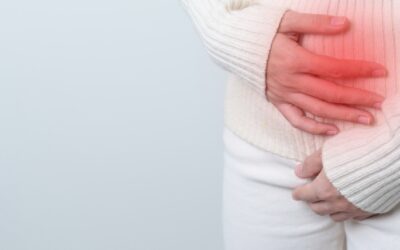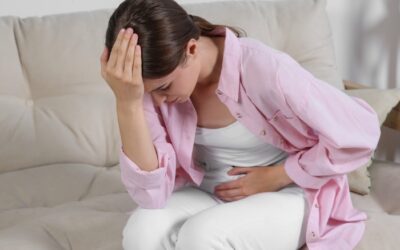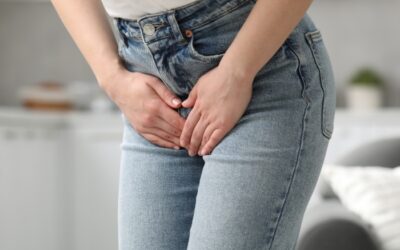If you are one of the many women struggling with heavy periods, you know how draining and frustrating they can be. You might find yourself changing pads or tampons every hour, doubling up on protection, or even avoiding social plans altogether when your period hits.
One of the most common causes of heavy menstrual bleeding is uterine fibroids. But why exactly do fibroids lead to such heavy bleeding? Let’s break it down, explain what’s happening inside your body, and explore what you can do about it.
What Are Uterine Fibroids?
Uterine fibroids are noncancerous growths that develop in or on the uterus. They can be as small as a pea or as large as a grapefruit, sometimes even larger. Some women have just one fibroid, while others have multiple.
Not all fibroids cause problems. Many women have them without knowing it. But when they do cause symptoms, heavy or prolonged menstrual bleeding is one of the most common and disruptive issues.
How Do Fibroids Lead to Heavy Bleeding?
Here’s what we know about how fibroids can trigger heavy or abnormal bleeding:
- Increased surface area of the uterus
Fibroids, especially those that grow inside the uterine cavity (called submucosal fibroids), increase the surface area of the uterine lining. This means there is simply more tissue to shed during your period, which can lead to heavier flow. - Disruption of normal uterine contractions
The uterus normally contracts during your period to help shed its lining and stop bleeding. Fibroids can interfere with this natural process, making it harder for the uterus to contract effectively and control blood flow. - Fragile blood vessels over fibroids
Fibroids themselves have a rich blood supply. The blood vessels overlying fibroids can be fragile and prone to breaking, adding even more bleeding during menstruation. - Hormonal influence
Fibroids are sensitive to estrogen and progesterone, the hormones that regulate your menstrual cycle. They can create a hormonal environment that encourages the lining of the uterus to build up more than usual, leading to heavier periods.
What Does Fibroid-Related Bleeding Look Like?
Heavy bleeding from fibroids can look different for each woman. You may experience:
- Periods lasting longer than seven days
- Soaking through pads or tampons every one to two hours
- Passing large blood clots
- Needing to use double protection (tampon and pad together)
- Bleeding between periods (spotting or random bleeding)
- Feeling weak or tired from blood loss (which could indicate anemia)
Why Should You Be Concerned About Heavy Bleeding?
Heavy bleeding is not just an inconvenience. Over time, it can lead to:
- Iron-deficiency anemia
Too much blood loss lowers your red blood cell count, making you feel exhausted, dizzy, pale, or short of breath. - Lifestyle impact
You might start avoiding work, exercise, travel, or social activities due to fear of leaks or accidents. - Worsening fibroid symptoms
If left untreated, fibroids can continue to grow, leading to more severe pain, pressure, or urinary problems.
How Are Fibroids and Heavy Bleeding Diagnosed?
If you are experiencing heavy periods, your doctor may recommend:
- Pelvic exam to check for uterine enlargement
- Ultrasound to visualize fibroids and measure their size and location
- MRI in some cases for a more detailed view
Blood tests may also be done to check for anemia.
What Are the Treatment Options?
The good news is that there are many ways to manage fibroid-related bleeding:
- Medications
Hormonal birth control, progesterone IUDs, or medications like tranexamic acid can help reduce bleeding. - Minimally invasive procedures
Uterine artery embolization blocks blood supply to fibroids, shrinking them. Endometrial ablation removes the uterine lining to control bleeding. - Surgical options
Myomectomy removes fibroids while keeping the uterus. Hysterectomy removes the uterus and is a permanent solution.
When Should You See a Doctor?
You should talk to a healthcare provider if you notice:
- Soaking through pads or tampons in an hour or less
- Periods lasting more than seven days
- Bleeding between periods
- Symptoms of anemia like fatigue, dizziness, or shortness of breath
At Katy Women’s Pelvic Health, Dr. Solafa Elshatanoufy specializes in diagnosing and treating fibroid-related bleeding, offering expert care tailored to your needs and goals.
Final Thoughts
Uterine fibroids are a common cause of heavy bleeding, but you do not have to live with the frustration, exhaustion, and disruption they bring. Understanding why fibroids cause heavy periods is the first step toward finding the right treatment and getting your life back.
With the right medical guidance, you can explore options that work for you and reclaim your comfort, energy, and confidence.
Blog Disclaimer
This blog is for informational purposes only and is not a substitute for professional medical advice, diagnosis, or treatment. Please consult your doctor or qualified healthcare provider if you have any questions or concerns about heavy bleeding or fibroids.



